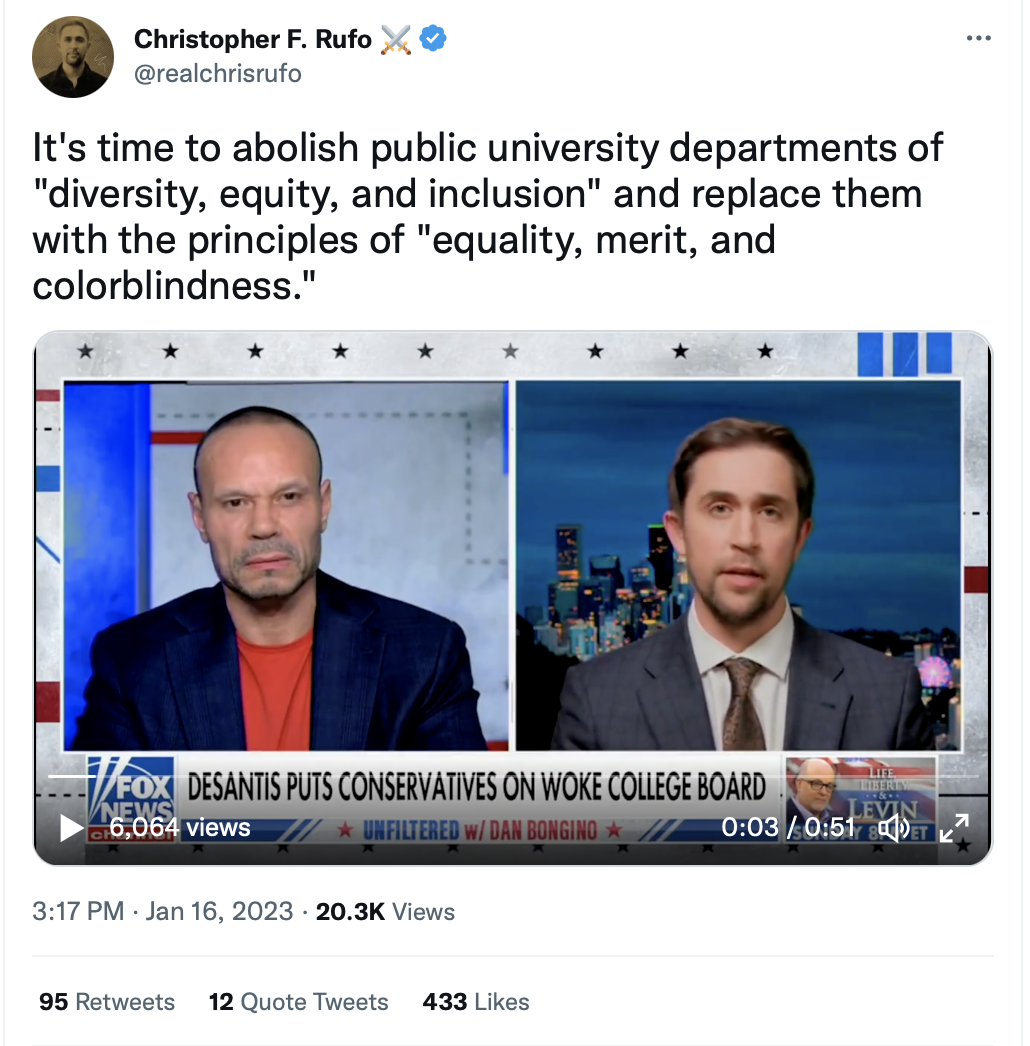It’s Time to Abolish, Redefine and Rebuild University DEI Departments.
The people of the United States need to have a robust and wide-open conversation on this proposal. I don't know that a meaningful conversation would be possible, however, given that so many people now support censorship, cancellation, ad hominem attacks, words-are-harmful, Manicheanism and the idea that we should divide all people into two--count'm, two--"colors." I think Chris Rufo is correct in his prediction that a large majority of Americans would support his proposal.
In the meantime, the annual DEI budget for the University of Michigan is $18M.
The university’s vice provost for equity and inclusion, Tabbye Chavous Sellers, is the highest-paid DEI staffer. Sellers, the wife of former DEI provost Robert Sellers, makes $380,000. Seventeen DEI staffers make more than $200,000 in total compensation, according to the data. Ninety-five staffers make more than $100,000 in total compensation.
That annual expenditure would be enough money to pay the instate tuition for 1,075 students.

